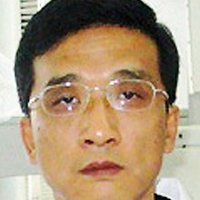Efficacy of Botulinum Toxin-A Injections in Masticatory Muscles for the Management of Bruxism: A Clinical Perspective
Published on: 21st May, 2025
Bruxism, characterized by involuntary, repetitive jaw-muscle activity including clenching and grinding of teeth, can lead to significant dental and muscular complications. Conventional treatments—such as occlusal splints and behavioral therapy-may not fully address muscular hyperactivity. Botulinum toxin type A (BoNT-A), a neurotoxin that inhibits acetylcholine release at neuromuscular junctions, has emerged as a promising therapeutic option. This article reviews clinical studies regarding the efficacy of BoNT-A injections into masticatory muscles for bruxism management, with a focus on clinical outcomes, safety, and practical considerations.
The Power of Potentized Complementary Medicines at Nanoscale for Infectious Diseases Management
Published on: 22nd May, 2025
This study explores the effectiveness of Homeopathy in managing infectious diseases, focusing on its integration with nanoscience. The key objectives include assessing the role of homoeopathic treatments in reducing morbidity and mortality from various infections, such as respiratory, gastrointestinal, and mosquito-borne diseases, and examining the scientific mechanisms behind its therapeutic effects.Key findings from the study include evidence of nanoparticles in highly diluted homoeopathic solutions, suggesting that these remedies may retain measurable amounts of the original substances. This nanoparticulate perspective bridges traditional homoeopathic practices with modern nanomedicine. Historical evidence, such as Hahnemann’s work on scarlet fever and recent studies during the 2006 Chikungunya epidemic, supports the effectiveness of homoeopathic treatments, demonstrating improved recovery rates and reduced complications with integrated homoeopathic and allopathic approaches.The main conclusion of the study is that Homeopathy, particularly when combined with nanoscience, holds significant promise as a complementary approach in the management of infectious diseases. The presence of nanoparticles in homoeopathic remedies may explain their therapeutic effects, positioning Homeopathy as a valuable component of holistic healthcare strategies, especially in developing countries.
Unveiling Healthcare Disparities: Social Exclusion and Public Health Challenges in Rural Ganderbal, Kashmir
Published on: 22nd May, 2025
This study explores the dynamics of social exclusion in healthcare settings within the rural Ganderbal district of Kashmir, focusing on the availability of health facilities and the health-seeking behaviors of socially disadvantaged populations. Through a mixed-methods approach, combining quantitative data from interviews and qualitative insights from observation, the research reveals significant disparities in healthcare access between rural and urban areas. Key findings indicate that rural residents face exclusion due to a scarcity of hospitals, unavailability of 24-hour medical staff, inadequate infrastructure, staffing shortages, and systemic biases, compounded by environmental and occupational challenges. Communicable diseases predominate, with majority of respondents affected, and traditional healers and medical shops serve as primary care sources over formal institutions like government hospitals. Socio-economic factors, including low literacy, reliance on agriculture, and poverty, exacerbate these issues. The study highlights higher infant mortality and malnutrition rates in rural areas compared to urban centers, underscoring the need for attitudinal shifts among healthcare providers and systemic improvements in infrastructure and policy to enhance health equity. By addressing an underexplored gap in rural health research in India, this work aims to inform strategies for inclusive healthcare delivery, potentially yielding broader societal benefits through improved well-being and demographic dividends.
Redefining Biotechnology for the Global South: The Role of Synthetic Biology and Computational Tools
Published on: 26th May, 2025
Biotechnology has always played an important role in tackling global concerns, particularly in the Global South, where socioeconomic gaps sometimes stymie scientific progress. Recent advances in synthetic biology and computational technologies have the potential to revolutionize biotechnology in these locations. Synthetic biology allows for the creation and manipulation of biological systems, with promise applications in healthcare, agriculture, and environmental control. Computational methods such as machine learning and artificial intelligence help to optimize synthetic biology processes, enabling innovations that are suited to local requirements. The combination of these cutting-edge technologies with traditional biotechnological techniques has the potential to dramatically improve the Global South's ability to solve issues such as disease outbreaks, food security, and sustainable development. This abstract outline the critical intersections of synthetic biology and computational advancements and their potential to empower the Global South, highlighting the need for supportive policies and capacity-building initiatives to maximize their impact.
Browse by Subjects
Chemistry Group Journals
Pharma Group Journals
Mathematics & Physics Group Journals
Clinical Group Journals
- Archives of Food and Nutritional Science
- Annals of Dermatological Research
- International Journal of Clinical Microbiology and Biochemical Technology
- Journal of Advanced Pediatrics and Child Health
- Journal of Pulmonology and Respiratory Research
- Insights in Clinical and Cellular Immunology
- International Journal of Clinical Anesthesia and Research
- Journal of Clinical Intensive Care and Medicine
- Journal of Clinical, Medical and Experimental Images
- Journal of Neuroscience and Neurological Disorders
- Insights in Veterinary Science
- Journal of Stem Cell Therapy and Transplantation
- Archives of Asthma, Allergy and Immunology
- Journal of Child, Adult Vaccines and Immunology
- Archives of Cancer Science and Therapy
- Clinical Journal of Nursing Care and Practice
- Annals of Clinical Gastroenterology and Hepatology
- Journal of Hematology and Clinical Research
- Archives of Pathology and Clinical Research
- Annals of Clinical Hypertension
- Journal of Oral Health and Craniofacial Science
- International Journal of Clinical and Experimental Ophthalmology
- Journal of Radiology and Oncology
- Journal of Clinical Nephrology
- Archives of Clinical and Experimental Orthopaedics
- International Journal of Bone Marrow Research
- International Journal of Clinical Virology
- New Insights in Obesity: Genetics and Beyond
- Advanced Treatments in ENT Disorders
- Journal of Clinical Advances in Dentistry
- Insights on the Depression and Anxiety
- Heighpubs Otolaryngology and Rhinology
- Clinical Journal of Obstetrics and Gynecology
- Archives of Surgery and Clinical Research




